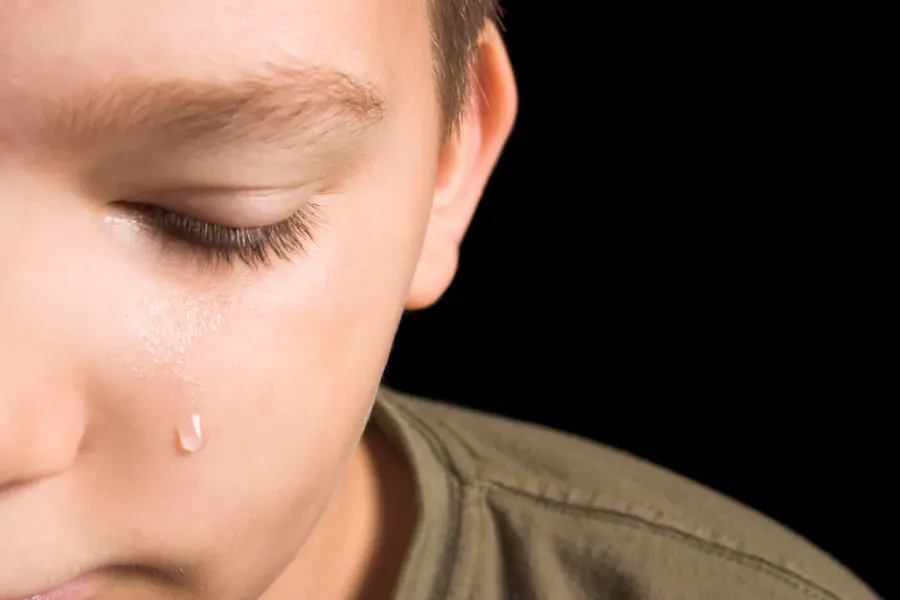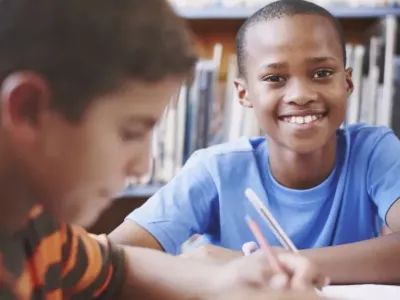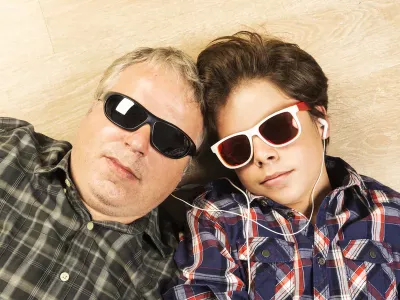Helping Kids Deal With The Death Of A Loved One

While it’s probably a good idea to shield young children from a constant onslaught of media reports of death and violence, there are times when talking about death with kids cannot, and shouldn’t, be avoided.
Children observe from a young age that things around them in nature such as plants and insects don’t live forever. But their understanding of life and death really depends on their level of cognitive development. When someone in the family dies, or perhaps when a much-loved pet dies, it can be uncomfortable for some adults to see children not reacting the same way a grown-up would.
Infants and toddlers may be aware people around them are sad but really have no understanding of the meaning or significance of death. Preschool aged children may deny the reality of death, and see it as being temporary and reversible. When someone has been ill for a long time, adults may have been worrying and preparing for such a long time that even though it is very painful, there’s also a feeling of relief, especially if there’s been an end to someone’s suffering. But sometimes death can be sudden and unexpected. Children will pick up on the fact that people are shocked as well as grieving.
It’s best to be honest with children because otherwise it can be very confusing. Since younger children tend to see the world in a very literal way, the explanation needs to be in really basic and concrete terms. For example, if a loved one is elderly or has been poorly for a long time, you might explain that the person’s body stopped working and the doctors couldn’t fix it. It’s concrete; it’s simple; it’s at a basic level.
If a parent is diagnosed with a serious or terminal illness, children will start to become aware of some of the consequences of living with illness within the family. For example: mum’s less able to do particular things, or dad can’t go to work anymore. Quite often in this sort of situation, children will start to be curious and ask questions, and in some ways that makes it easier for parents to start the conversation, because children are signalling an interest in talking about it. Kids need to get some kind of simple primitive understanding of what’s going on – just enough to satisfy their curiosity. The danger is trying to over-explain, and providing more information then they need, or getting into deception and half-truths. For example if someone is seriously ill or has died, and you’re creating an illusion that the person’s gone missing, or they’ve gone away for a long holiday, or they’ve gone to sleep. This tends to backfire in the long run.
As children move through primary school, they start to have a greater understanding of the permanence of death, but they still may not readily accept it, or really understand the causes of it. So it’s not until they reach adolescence that the whole notion of the life cycle and the permanence of death is really, fully grasped.
If kids have been growing up in a home where it’s okay to talk about your emotions and feelings, then they’ll have a better capacity to express something that may be painful, or confusing, or upsetting. You don’t have to feel like you should never cry in front of the children. Loss is something that can be experienced at anytime. The more we try to bury the difficult emotions of dealing with loss and grieving and protect children from something that is a normal healthy process – tuck them away and try to pretend it’s not happening – the harder it can be for them to get over it.
A child may worry that death could easily happen to them, too. The most important thing is to answer the child’s questions honestly, to create an atmosphere of comfort and openness, and also safety. The child needs to know that even though mum or dad are terribly upset by this, they will get over it and the child will be safe and cared for.
For many families, religion provides people with a great deal of comfort, particularly at a time of grieving and of loss. But irrespective of a person’s religious beliefs, there is a coping process allows us to, given time, be able to deal with and accept what has happened.

